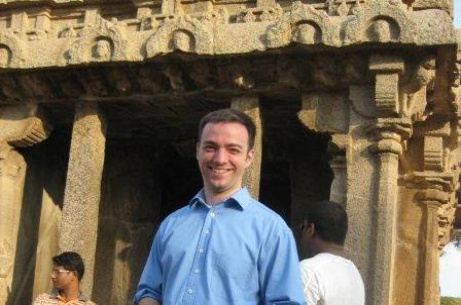
Scholar Elect Todd Tucker will study whether national and corporate interests can coexist.
How free are countries bound by international investment agreements to choose their own environmental policies if they interfere with future profit margins?
Gates scholar elect Todd Tucker says international investment agreements have been around since the late 1950s, but have rarely been invoked. There were only two cases a year from the 1980s to 2000 at the main arbitral centre at the World Bank, but over the last decade that number has been growing and in 2011 there were almost 40 cases. Argentina accounts for a large number of them.
Todd [2012] aims to focus his PhD in Development Studies on exploring whether there are any steps that can be taken to align company interests with national interests around issues such as poverty alleviation.
He is also keen to look for patterns in the cases which have come before judges. He says, for instance, that there is evidence of conflicts of interest between the judges and lawyers for the private companies involved. “It’s a bit of a rotating door,” he says. “The lawyers can serve as both judges and counsel for the companies and yet the judges are making rulings on issues that are crucial for economic development. Many of them have no economic training either.”
Todd’s interest in Latin America stems from spending most of his primary school years living in Costa Rica and Argentina not long after the fall of the latter country’s military dictatorship. His parents – his father worked in social services and his mother in journalism – had moved there from Kentucky because they were Baptist missionaries for a nearly five-year term. In Buenos Aires, where he lived for around two and a half years, he went to a Spanish language school because his parents wanted to integrate into the community.
When he returned to the US at the age of 10, Todd felt very much an outsider because he had identified so much with Argentine culture. “I felt like I stood out quite a bit,” he says. For that reason he got involved in the Sister Cities International community programme. “I had a little home there with people who had travelled internationally and been in developing countries,” says Todd. “I was chomping at the bit to talk to people who had had similar experiences to me.”
In high school he also took part in the Anytown USA project run by the National Conference for Christians and Jews (now called the National Conference for Community and Justice) which was outspoken about issues such as racism, classism and sexism. He became a coordinator of their summer camp and facilitated workshops to bring young people together in a place where they could feel comfortable talking about their prejudices. Todd also helped to recruit other teenagers to the organisation.
His high school had a very experimental curriculum which allowed students to choose many of the subjects they wanted to study. This meant Todd could study Latin American issues even though they were not on the state curriculum.
In 1997 he went to George Washington University where he studied International Affairs. During his course he had the opportunity to study abroad in Argentina and Brazil and worked with local economic justice advocates.
After graduating he won a Bender scholarship to do an MPhil in Development Studies at the University of Cambridge where he studied with the economist Ha-Joon Chang who will supervise his PhD. The MPhil focused on issues such as economic growth and international trade agreements.
He went on to work for the Centre for Economic and Policy Research researching international trade and development issues with a Latin American focus, including Argentinian national development policy.
He is currently research director of the Public Citizen think tank’s trade division where he works closely with members of Congress on issues such as the Obama’s administration’s ban on flavoured cigarettes which was recently overturned by the World Trade Organisation. He alsostudies US trade policy towards developing countries and says the Argentinian example is very relevant. “The Argentinian example of dealing with collapse and catastrophe shows that sometimes if you bite the bullet you can get the economy growing again,” he says.
He will begin his PhD in October.












